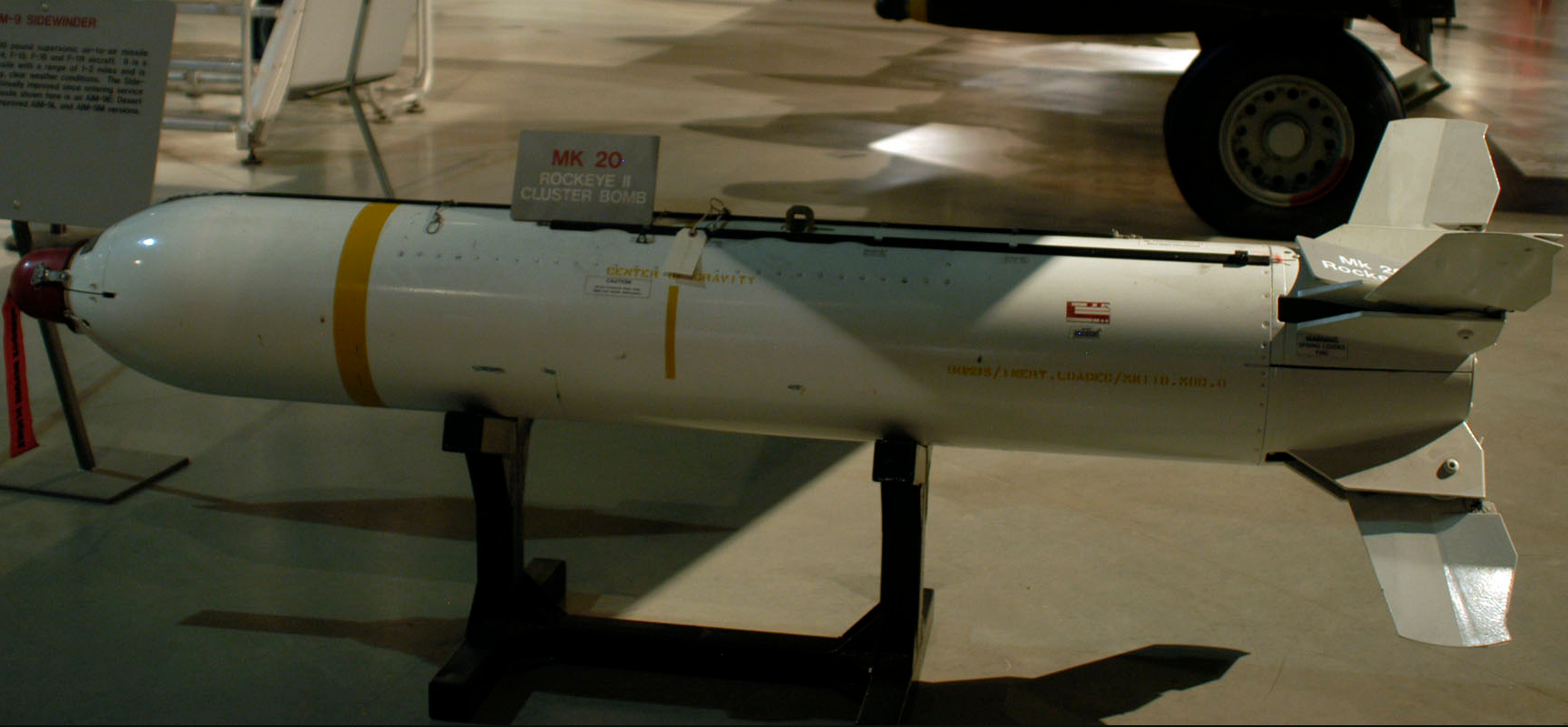The Ukrainian government is asking the U.S. to send cluster bombs to aid in their ongoing defense against Russian invasion forces, according to two U.S. congressmen.
Reps. Jason Crow (D-CO) and Adam Smith (D-WA), who both serve on the House Armed Services Committee, told Reuters that Ukrainian forces have requested the U.S.-made Mk-20 Rockeye II cluster bomb.
Cluster bombs are designed to open in mid-air and release a cluster of submunitions or bomblets that spread out and detonate over a wide area.
Cluster bombs are controversial because they release explosives over a wide area and it’s hard to account for all of the submunitions once they’re deployed. Submunitions that fail to explode when initially released could pose an indiscriminate threat to civilians that may stumble upon them and accidentally detonate them later. To date, 110 countries have signed the 2008 Convention on Cluster Munitions, which prohibits signatories from stockpiling or using the weapons. The U.S. has not joined the arms control agreement.
According to Crow and Smith, the Ukrainians don’t actually want to use these cluster bombs for their original intended purposes. Instead, they plan to strip down the MK-20s and take their submunitions to then use as bomblets dropped from cheap consumer-grade drones.
The war in Ukraine has seen widespread use of relatively cheap consumer drones dropping modified grenades and other explosives down on unsuspecting troops below. The weaponization of hobby drones actually became so prolific with both sides of the Ukrainian conflict that the world’s largest drone manufacturer, DJI, suspended sales to both Russia and Ukraine last year.
Smith told Reuters that Ukrainian forces are seeking the dart-like submunitions from the MK-20 cluster bombs because they “have better armor-piercing capability” than the modified grenades Ukrainian forces have primarily dropped from cheap consumer drones to harass and erode Russian invasion forces.
Though Ukrainian officials have claimed they only want to take the submunitions from the MK-20 cluster bombs, the request for the munitions could fuel controversy. Ukraine has been accused of using cluster munitions for their original intended purpose as far back as 2014, when the Ukraine-Russia war was a relatively low-level conflict. Human Rights Watch claimed Ukrainian government forces were likely responsible for releasing cluster munitions in separatist areas of eastern Ukraine, such as Donetsk.
In December, CNN reported Ukrainian government officials had been requesting that the U.S. supply cluster munitions that could be fired from HIMARS rocket launchers and the 155 mm howitzers. The Ukrainian officials reportedly hoped these cluster munitions could help them overcome Russia’s numerical advantage in artillery. A Ukrainian official justified the request in a comment to CNN at the time saying, “So what? Russians use cluster munitions against us. The [US] worry is about collateral damage. We are going to use them against Russian troops, not against the Russian population.
Sen. Lindsey Graham (R-SC) favors supplying Ukraine with the 155 mm cluster shells and told Reuters that, starting this week, he would join the push for the U.S. to supply the cluster weapons to Ukraine.
“That’s not going to happen,” Smith told Reuters, while assessing whether President Joe Biden would sign off on supplying cluster weapons to Ukraine.
Crow told Reuters he would consider approving Ukraine’s latest request for MK-20s so long as there is an assurance that Ukrainian forces would actually remove the submunitions and “use them in a non-cluster employment.”
Textron Systems Corporation stopped producing the MK-20 cluster bombs for the U.S. after 2016, but a congressional aide told Reuters that the U.S. still has more than a million of the bombs in storage.


